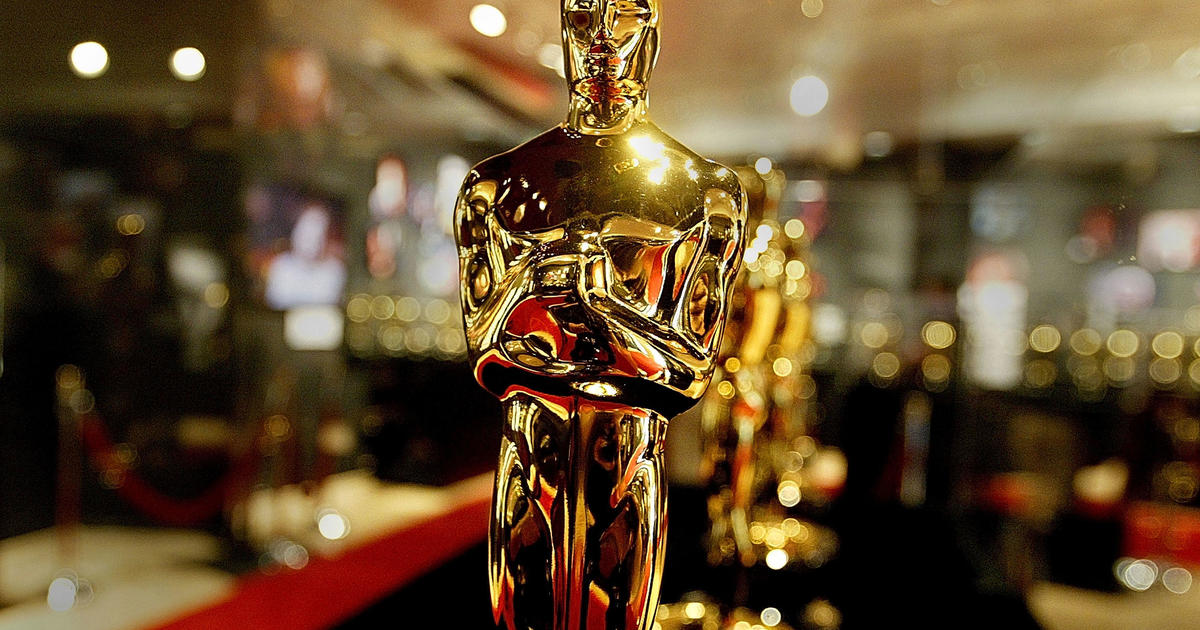Will "Oppenheimer" sweep Oscars?
An Oscar statue is perhaps the most coveted award an actor can hold. In most cases, however, the 24-karat gold-plated figure yields no more than a dollar — if a winner tries to resell it on the open market. Ahead of the 2024 Academy Awards on Sunday, here's a look at the strict rule behind Oscar's strikingly low resale worth.
- See the full list of Oscar nominations for 2024 Academy Awards
- Who's performing at the Oscars for 2024? Here's the list of confirmed Academy Awards performers so far.
How much is an Oscar worth?
In short $1. That's because anyone who wins an Oscar must sign an agreement and adhere to a no-resale rule put into place in 1951 by the Academy of Motion Picture Arts and Sciences, the professional honorary organization that hosts the Oscar Awards. The rule states that no one can resell their Oscar unless the Academy itself refuses to buy it first — for a dollar.
Why is an Oscar worth so little?
"Award winners shall not sell or otherwise dispose of the Oscar statuette, nor permit it to be sold or disposed of by operation of law, without first offering to sell it to the Academy for the sum of $1.00," the Academy's rule website states. "This provision shall apply also to the heirs and assigns of Academy Award winners who may acquire a statuette by gift or bequest."
The Academy did not immediately respond to a request for comment by CBS MoneyWatch on why the rule was put into place.
Nevertheless, attempts to try to sell an Oscar without first alerting the Academy have often led to courthouse showdowns.
The Academy in 2007 sued to stop the resale of two Oscars won by silent film star Mary Pickford. A California judge sided with the Academy in a 2008 ruling.
Six years later in 2014, Joseph Tutalo auctioned an Oscar that his uncle, Joseph Wright, won in 1943 for best color art direction for the film "My Gal Sal." The statue was sold for a winning bid of $79,200, Reuters reported at the time. The Academy sued Tutalo and the auction house that made the sale for breach of contract in 2015. Once again, a California judge ruled in favor of the Academy, forcing the auction's winner to return the statue.
But there have been instances where Oscar-statue seekers have been able to buy an individual's award without any legal challenge from the Academy. Here are a few examples:
- Michael Jackson bought the Best Picture Oscar awarded to producer David Selznick in 1939 for "Gone with the Wind." The King of Pop paid a hefty $1.5 million for it in 1999.
- Beatrice Welles, the youngest daughter of Orson Welles, sold the Best Original Screenplay Oscar her father won in 1942 for "Citizen Kane," for $862,000 in 2011, a quarter-century after his death. The 1941 movie, which Welles also directed and starred in, is considered the greatest film of all time by cinephiles. Beatrice first attempted to sell the prized statue at a Christie's auction in 2003, but was blocked by the Academy. In 2004 a U.S. District Court judge granted her the right to sell the award, marking the first time the Academy had lost a case against an Oscar resale, reported Variety.
- Director Steven Spielberg paid $607,500 for Clark Gable's Best Actor Oscar for "It Happened One Night." The Oscar-winning director also paid $758,000 for two Oscars won by Bette Davis, the Los Angeles Times reported.
- Magician David Copperfield paid $231,500 in 2003 for the 1943 Best Director Oscar awarded director Michael Curtiz for "Casablanca." He resold it at auction in 2012 for slightly over $2 million dollars.
The 2024 Academy Awards will be presented on Sunday, March 10, at 7 p.m. ET and 4 p.m. PT.

